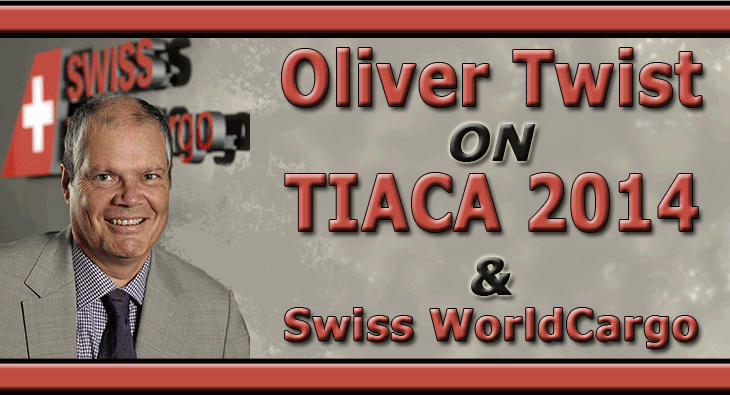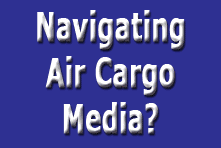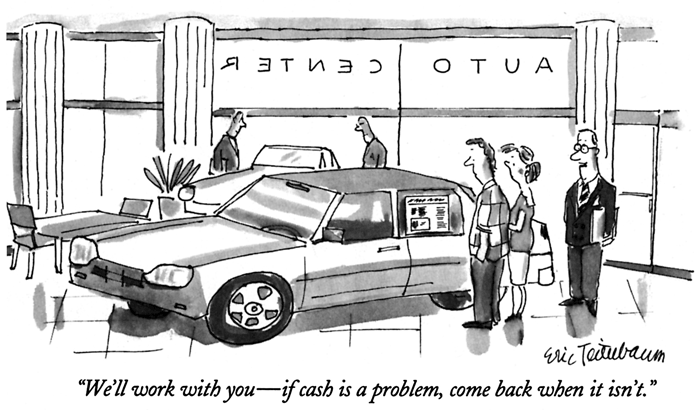
 t
will be a year of discovery; new board members, a great world meeting,
plus an unparalleled push into new frontiers for The International Air
Cargo Association (TIACA) and Chairman Oliver Evans hits the ground running. t
will be a year of discovery; new board members, a great world meeting,
plus an unparalleled push into new frontiers for The International Air
Cargo Association (TIACA) and Chairman Oliver Evans hits the ground running.
Evans, if nothing else, seems determined, even fearless as he and his
team at TIACA are reforming TIACA forever.
If he is right, and he appears sure of what
he’s about, TIACA could grow exponentially.
But there is growing vocal dissention and
dissatisfaction from what is now a crowd of former high ranking TIACA
leadership.
For his part, the well-spoken and determined
Oliver Evans appears to have maintained a grip on things at TIACA, and
as 2014 unfolds his view includes a year that promises to be even more
challenging for the entire air cargo industry.
“Of course, there are a number of
encouraging economic pointers, and it seems that GDP and global trade
will grow at an accelerating pace. But the growth will remain fragile
and uneven. More challenging still is the mix of commodities transported
by air, which is evolving rapidly, e.g. with miniaturization, increase
of value of goods traded, demand for new services, Internet shopping,
etc. Add to this potent mixture the pressure coming from overcapacity
in sea freight and modal shift on one end of the scale, and the performance
of the integrators at the other end. Add again new or evolving business
models, freight forwarders gaining access to airside handling facilities,
or setting up their own airlift; new sensors of every kind being tested
and certified with no clear picture of their impact on liability or customer
interfaces. The list of challenges could go on and on.
“Our industry is indeed complex and
poorly connected, and regulators and we ourselves make it more so. FIATA
and IATA and many other globally or regionally active associations do
sterling work in helping their members, creating paths through the jungle,
and developing programs and tools of every kind. And still progress is
slow, desperately slow.
“Therefore the vision set out for
the air cargo industry by the TIACA Board in April 2013 is more urgent
than ever: networking, leading, simplifying, linking all the various workstreams
and initiatives, filling in the gaps, eliminating duplications. This is
obviously not a task for TIACA alone; indeed, industry associations (TIACA,
FIATA, IATA, but again many others – the CCA, C2K, etc.) need to
not only facilitate, but also promote and celebrate each other’s
initiatives. This is why companies in our industry see the benefits of
joining several associations, vertical or horizontal, regional or global,
according to their needs. And TIACA, through its own committee work and
the great events it organizes, provides an essential platform to define,
bring about, and accelerate change.
“This is what has persuaded very well-respected
captains of the industry to join our Board in 2012 and 2013, so that we
now have a more dynamic, diverse, and influential group than we have ever
had, representing global companies and SMEs, airports, publishers, integrators,
forwarders, handlers, truckers, airlines, and 7 different countries on
3 continents.
“TIACA has established strong working
relationships with many regulatory bodies, including ICAO, the World Customs
Organization (WCO), and the U.S. Transportation Security Administration
(TSA), and Customs and Border Protection (CBP). In 2014, we will continue
expanding our contacts with these and other organizations, including the
World Trade Organization (WTO), the Universal Postal Union (UPU), the
European Community’s TAXUD (Taxation & Customs Union), and MOVE
(Mobility & Transport). And of course we will continue our work with
our GACAG partners in our areas of priority, Security and Safety, Market
Liberalization and Trade Facilitation, E-Commerce, Environment, and Infrastructure.
“But most of all, the industry is
driven forward by great networking events, where ideas can be exchanged
and developed. TIACA is the proud organizer of an annual Executive Summit;
the last edition (in Dallas in April 2013) was a huge success with a format
of facilitated discussions in smaller groups bringing together top executives
for intense dialogue and inspiration on a range of topics. We simply intend
to continue that success at this year’s Summit, in Istanbul on April
24th, while engaging actively with our membership on the next day’s
AGM.
“And last but not least, the biennial
Air Cargo Forum in Seoul from October 7th to the 9th: this shall of course
be a showcase for South Korea and its great success story of transforming
a nation depleted by a long war into an industrial giant and world power
in the shortest time. The ACF will attract anyone interested in that nation’s
vibrant air trade, but also in the wider Asian scene, or the greatest
air cargo market in the modern world; in meeting local and global regulators
(ICAO and WCO will be there!); in meeting customers, customers’
customers, and suppliers of every kind. We expect every group to be well
represented, from airlines to integrators and forwarders, handlers, airports,
IT and logistics companies, and of course shippers and regulators. Don’t
miss it!”

“Swiss WorldCargo is the cargo division
of a mid-sized airline, barely making it into the top 50 global airlines
in terms of size. But just as Switzerland as a country has remained highly
relevant and indeed essential on the global scene by leading such diverse
industries as banking, pharmaceuticals, or the watch industry, so Swiss
WorldCargo has set out to serve those very same industries on a global
scale, connecting Switzerland to the world and the world through Switzerland.
And so we are in the absolute leading ranks when it comes to the transport
of temperature-controlled cargo, valuables, express or mail, thanks to
the great work of our team worldwide, and the many suppliers and partners
who collaborate with them. This is our strategy, it has not changed for
the last 10 years and it will not change in 2014.
“But we will be taking things further
by leveraging our already considerable knowledge of and relationships
within our chosen vertical industries to develop even stronger collaboration
and quality assurance with freight forwarders sharing our specialization;
by investing more and more in systems to improve data and operational
quality, even though we are already consistently outperforming the industry
in most C2K metrics; by pushing e-freight: Swiss WorldCargo were the first
airline to sign the multilateral agreement; the first to activate it;
the first to convince the national aviation authority to accept it; and
now the first to implement the e-customs security declaration. These progressive
steps are much more important to us than the “numbers game”
played by the airline industry with grand targets which are never met.
We are simply delighted that the quality of our messaging (FWBs) is far
superior to the industry norm, and that is our common achievement with
our customers. We thank them for the constant, detailed work to improve
things together."
Geoffrey/Flossie
|







